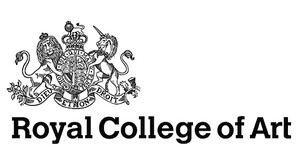Kensington, Battersea, White City
London SW7 2EU
United Kingdom
The Master in Research in Architecture at the RCA is a critical investigation into the future of architecture: its limits, its norms, and its possibilities.
What is an architecture of care?
Can architecture confront inequality?
Is demolition ethical?
Who controls the smart city?
Is gentrification a hate crime?
Can we feel data?
How do we design for more-than-human kinship structures?
Can we write “feeling” into urban planning?
How can we decolonise collective politics?
Should architects unionise?
How do we queer data?
Is cultural infrastructure mycelial?
How does environmental justice reconceive construction labour?
Where do we grieve in public?
The MRes is a critical response to the step change in architecture, urban and spatial industries demanding more research-intensive skills. As a programme for the 21st Century, it is committed to exploring processes of decolonisation in spatial practice and pedagogy, and foregrounds inquiry into social inequalities, structures of capital, labour, and justice, and confronts the anthropocentrism of design.
A uniquely interdisciplinary degree, the MRes is the only postgraduate course taught across all four schools of the RCA. Students work with, and learn methods, practices and theories from Architecture, Arts and Humanities, Communication, and Design. The programme attracts a broad range of early and mid-career architects, spatial practitioners, and urban scholars who see an advanced research degree as an opportunity to develop research for practice, or as preparation for PhD study.
The MRes Architecture programme is taught through a set of expert lectures and workshops, and practice-led studios that refine methodological acuity, speculative criticality and theoretical rigour. From day one, students begin to define, design and deploy their year-long research project. Students also lead a term-long group studio-based research project that connects academic research to a live project and external partners.
Programme Lead: Dr Adam Kaasa
Faculty: Dr Esther Teichmann, Dr Nicky Coutts, Dr Emily Candela, Dr Laura Ferrarello, Dr Helga Schmid
Recent Guest Lecturers: Merve Bedir (Hong Kong University), Hannan Majid and Richard York (Rainbow Collective), Jane Hall (Assemble), Julia King (LSE), Edwin Heathcote (Financial Times), Shumi Bose (Central Saint Martins), Katye Coe (Dance Artist), Alpa Depani (Public Practice), Melissa Meyer (We Made That), Pooja Agrawal (Greater London Authortiy), Yara Sharif (University of Westminster), Cassim Shepard (Columbia University), Erica Scourti (Artist), Marcus Coates and Fiona MacDonald (Feral Practice), Micheal Burton and Michiko Nitta (Burton Nitta), Kristina Solomouka (École Européenne Supérieure d’Art de Bretagne – Rennes), Mathieu Charles (Minderhedenforum), Peter Westenberg (École de Recherche Graphique), Carol Mavor (University of Manchester), Sayan Skandarajah (University of Reading), Pablo Sendra (UCL), Petra Marko (markoandplacemakers), Tom Dobson (public works), Alex Rhys-Taylor (Goldsmiths College)
2019 Research Studio: We Cannot Work Like This: Decolonial Practices and Degrowth
This transnational alliance of artists, architects, scholars and activists asks what does a charter for decolonisation and degrowth look like in cultural and academic institutions? Starting from an anti-racist, anti-capitalist perspective, the alliance confronts questions of labour, of mobility and migration, of language and privilege, and enables students to work together on a proposal for new ways of working. The launch of the seminar took place at the Swamp Pavilion, in the frame of Venice Biennale of Architecture September 2018, followed by workshops in London and Brussels in January 2019, and concluding with participation in the Contour Biennial 9 in Mechelen, Belgium in May 2019.
Collaboration with “Coltan As Cotton,” Contour Biennial 9, Mechelen
Curated by Nataša Petrešin-Bachelez, organised by Nona Kunstencentrum with Hong Kong University; École européenne supérieure d’art de Bretagne, Rennes; École de recherche graphique, Brussels; Academy of Arts, HISK, Ghent; Royal Academy of Fine Arts, Antwerp; St Lucas Academy, Antwerp; Thomas More University of Applied Sciences, Mechelen, Open Design Course, Royal College of Art
2018 Research Studio: After the Creative City?
MRes Architecture students asked what comes after the creative city? In cities like London, financialised land and housing markets contribute to culture’s expulsion from the city. 35% of grassroots music venues have closed since 2007, 58% of LGBTQI venues since 2006, and a projected 30% of artist studios by 2019. Their study looked to two sites in the North London Borough of Haringey. The Wards Corner Regeneration plan to close a Latin American market sparked a UN Human Rights investigation that warned this closure “represented a threat to cultural life.” Less than 500m away, Tottenham is the pilot for “Creative Enterprise Zones” that is intended to lure and retain creative industries in London. This research project asks what counts as culture in a site that both erases and props it up.
Collaboration with New River Studios, London with contributions from We Made That, Terrence O’Rourke, and the Greater London Authority



